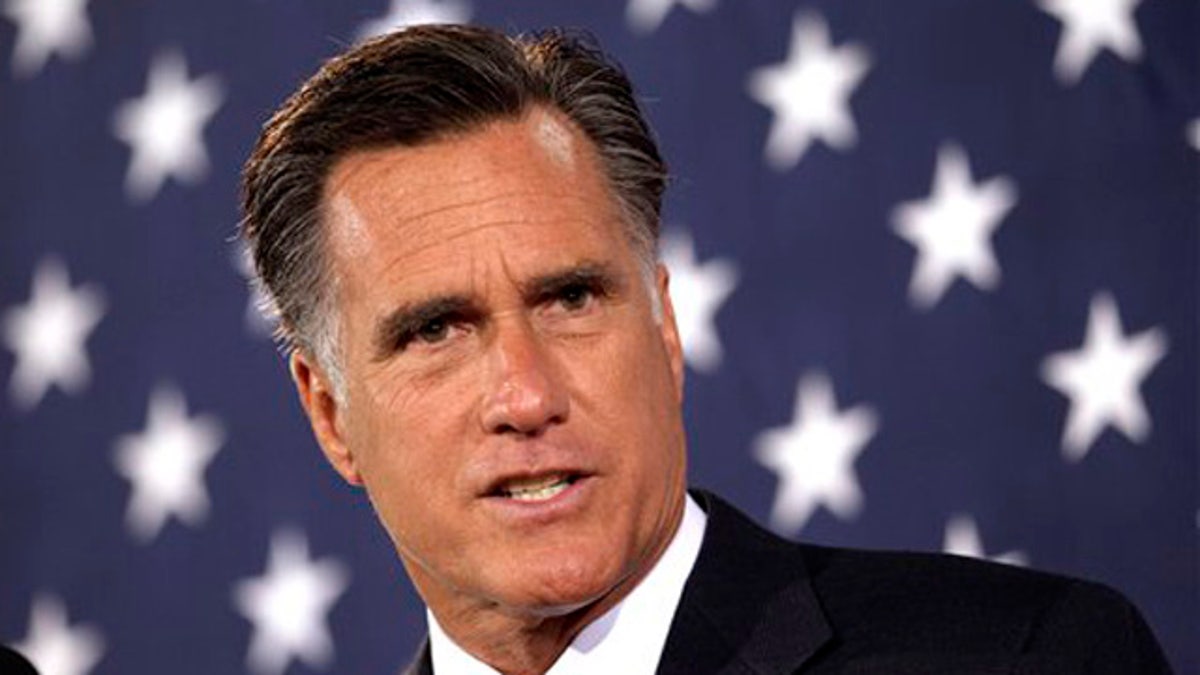
April 18, 2012: Republican presidential candidate, former Massachusetts Gov. Mitt Romney addresses supporters during a campaign stop in Charlotte, N.C. (AP)
The big news in the world of political lobbying last week was the flight of major corporations from the American Legislative Exchange Council (ALEC).
In recent years ALEC had become the model for coordinated, effective lobbying on Capitol Hill as well as in state capitols. ALEC pioneered the strategy of creating one-size-fits-all legislation on a wide range of issues and then pushing it into law across the country.
Name a controversial, conservative piece of legislation from the last two years — from South Carolina’s Voter ID law to Alabama’s “Papers Please” immigration law to Wisconsin’s effort to strip unions of collective bargaining rights — and ALEC had a hand in writing it.
The group counts Speaker John Boehner (R-Ohio), House Majority Leader Eric Cantor (R-Va.), and Govs. Scott Walker (Wis.), Mitch Daniels (Ind.) and John Kasich (Ohio) as “alumni.” That means they attended private conferences put on by ALEC to write prospective legislation to be sent to Capitol Hill and state legislatures.
ALEC is bankrolled by some of the wealthiest and most powerful corporate interests in the world. For instance, the Koch brothers have been among the group’s major benefactors for years.
Part of the key to ALEC’s success was that few Americans ever heard of the group. That all changed with the Trayvon Martin murder case. It was ALEC, working to advance the National Rifle Association’s (NRA) agenda, which expertly guided passage of the now infamous “Stand Your Ground” law.
When the unarmed Martin, 17, was shot dead, his assailant was initially not charged with any crime apparently because of the “Stand Your Ground” law. Prosecutors reasoned that the law made it legal to shoot any person viewed as being suspicious — even a teenager walking home after buying candy and iced tea.
ALEC’s success in getting such a radical idea put into law has attracted far too much attention for any lobbyist.
Coca-Cola, Kraft Foods, the Bill and Melinda Gates Foundation and Horizon Blue Cross-Blue Shield have all announced that they have or will discontinue their support for ALEC.
And even as ALEC has hit the crisis response button by disbanding the unit inside the group that guided the “Stand Your Ground” idea onto the statute books, ALEC’s political partners are heading for the doors.
Former Florida Gov. Jeb Bush (R), who signed “Stand Your Ground” into law, told me recently the law was intended to prevent looters, in the aftermath of storms, coming onto private property to rob homeowners.
And Mitt Romney, the GOP’s likely presidential nominee, speaking at the NRA’s national convention earlier this month, did not say a word in defense of “Stand Your Ground” even as he charged President Obama with failing to “stand up for the rights of hunters, sportsmen and those seeking to protect their homes and their families.”
Now ALEC’s negative image is about to loom even larger as President Obama’s campaign enacts a strategy of reminding voters of the extreme conservative positions Romney adopted to win the GOP nomination.
Romney never endorsed the “Stand Your Ground” law. In fact, when he ran for governor of Massachusetts he said, “I don’t line up with the NRA.” And as governor he raised fees on licensed gun owners.
But when he decided to run for president, Romney signed up for a lifetime NRA membership. That fits a pattern of Romney signing on to far right positions in order to win over conservatives during the GOP primary.
There is videotape of Romney saying that Arizona’s immigration law should be a model for the nation and that Walker is his hero because of his union-stripping law. It will be very hard for him to walk back these statements. It will not be as easy as shaking an Etch-a-Sketch.
While popular with hardcore conservatives, these initiatives are wildly unpopular with key demographics — including the independent voters that Romney will need in November.
Last week’s polling from NBC News and the Wall Street Journal found President Obama leading Mitt Romney by double digits among women, African Americans, Hispanics and young people.
But perhaps the most troubling number for Romney has to be his deficit (34 percent as against Obama’s 44 percent) with independent voters.
A March poll from the nonpartisan group Third Way found similar results when they surveyed 1,000 independent voters in 12 battleground states. They call them the “swing independents.” They are evenly split in terms of having favorable or unfavorable views of Romney.
By contrast, 57 percent have a favorable view of Obama and only 35 percent have an unfavorable view. When asked whom they planned to vote for, Obama won with 44 percent to Romney’s 38 percent.
Romney’s endorsements of ALEC laws are a major part of why independent voters are reluctant to back him.
So, get ready to hear a lot more about ALEC-style backroom, corporate lobbying as a key part of the Democrats’ attack on Romney as too right-wing for America.
Juan Williams is an author and political analyst for Fox News Channel. This column originally appeared in The Hill newspaper and on TheHill.com.
